2023 ESTRO Physics workshop: Science in development
Towards a consensus on pre treatment verification in particle therapy
13-14 October 2023, Turin, Italy
PDF version
Chairs: Liliana Stolarczyk, Marie Vidal
We are very happy to report that the recent workshop ‘Towards a consensus on pre-treatment verification in particle therapy’, which was hosted at the annual ESTRO physics workshops, was a productive and enjoyable session.
The workshop began with an online pre-meeting on 18 September, at which we discussed our motivations for joining, and the results of a participant survey on existing pre-treatment verification practices. After this, there were presentations from invited speakers. Presenting on behalf of the treatment efficiency subcommittee of the Particle Therapy Co-Operative Group (PTCOG), Daniel Robertson (Mayo Clinic, USA) gave an excellent talk in which he highlighted the application of the processes of failure modes and effects analysis to patient-specific quality assurance (PSQA) in particle therapy. This was followed by Daniela Thorwarth (University of Tübingen, Germany), who provided an insightful overview of the challenges and solutions during the implementation of PSQA for online adaptive radiotherapy, in particular for MR-Linacs.
This set the scene for two days of in-person discussion on 13-14 October, in Turin, Italy. The workshop brought together a wide range of experts in the field, with representatives from Europe, North America and Australasia, and three commercial vendors (IBA Dosimetry, PTW and RaySearch). The session began with Tony Lomax (Paul Scherrer Institute, Switzerland) giving a typically well-reasoned introduction to PSQA. He included an overview of the potential limitations of measurement-based QA and a good discussion about the strengths and weaknesses of alternative approaches. This laid the groundwork for some stimulating discussions; people separated to cover one or more of the following working groups:
- definition of PSQA;
- workflow of future/optimal PSQA; and
- intervention criteria of PSQA and what to do in case of failure.
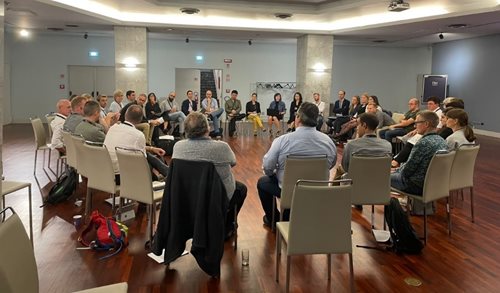
Figure 1: Participants discussing in group.
The discussions were interspersed with excellent presentations that covered practical experiences of introducing measurement-less PSQA workflows. These were made by Stefan Both (Groningen, The Netherlands), Loïc Grevillot (MEDAustron, Austria) and Ilaria Rinaldi (MAASTRO, The Netherlands). In addition, Frank Emert (Paul Scherrer Institute, Switzerland) presented further information on the approach taken by the PTCOG treatment efficiency subcommittee and there were presentations from IBA and PTW regarding the status of their services and products that could support the use of measurement-less PSQA workflow.
During the discussions, it became apparent that there were diverse challenges that each centre faced when it came to carrying out PSQA, as nearly every centre had unique combinations of technologies. Nevertheless, there was a clear and collective drive to improve the efficiency of this process. The outcome of the workshop was a clearer consensus on how we define PSQA, with an agreement that workflow for PSQA should be founded upon evidence-based risk assessment that is factored in the individual centre’s experience. It was acknowledged that checks of data transfer integrity and machine-beam deliverability, and performance of an independent dose calculation, were all of value in patient plans, which often presented as complex cases, and that these checks could form part of PSQA to be incorporated into other QA processes that were already in place. Although there was a clear drive to move towards measurement-less PSQA, the role of measurements was not dismissed; it was agreed that they offer significant value for validation of new techniques, or during the commissioning of a new system.
One of the major discussion points was the benefits of log and machine files. There is some variation in the availability of these files depending on the vendor, and there was a clear agreement that we should push to make these files available to the customer. There were also discussions on standardisation of the criteria that were used to assess measurements, and what to do if measurements failed.
There is much to be continued on the three topics that were covered during the in-person meeting. A post-workshop meeting is already being arranged. We hope to develop these discussions to form sub-working groups and to draw up a consensus publication in the future.
Finally, we’d like to offer our sincere thanks to ESTRO, to all those who were involved in the organisation of a fantastic workshop, and to the participants and invited speakers for their commitment and enthusiasm, which made the workshop such a success.
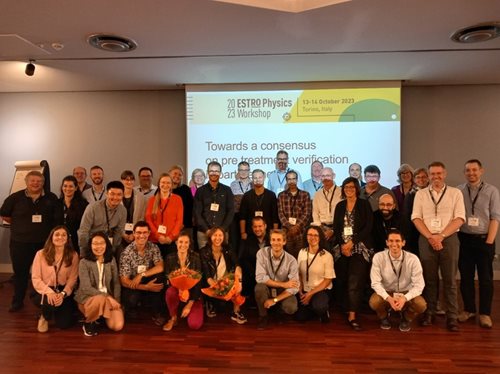
Figure 2: Participants from the pre treatment verification in particle therapy group.
|
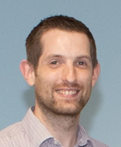
|
David Lines
Principal clinical scientist
The Christie NHS Foundation Trust
Manchester, UK
|
Chairs
|
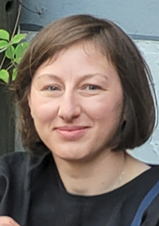
|
Liliana Stolarczyk
Medical Physicist
Aarhus University Hospital
Århus, Denmark
|
| |
|
|
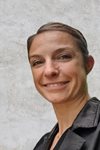
|
Marie Vidal
Medical Physicist
Centre Antoine Lacassagne
Nice, France
|